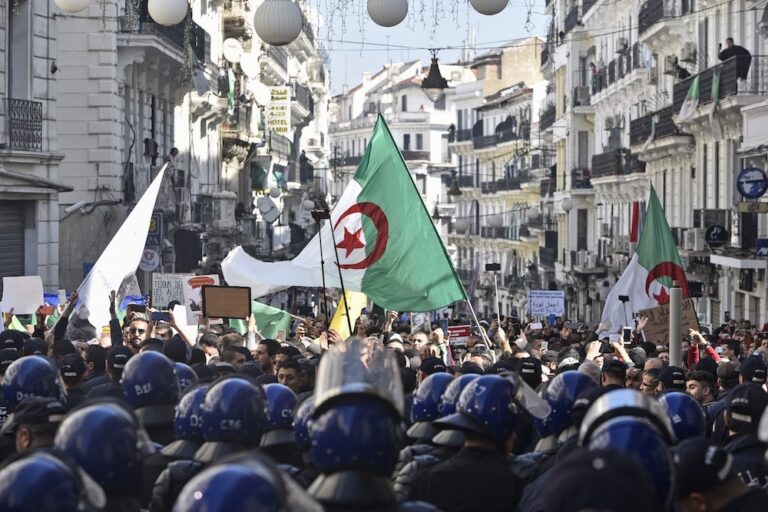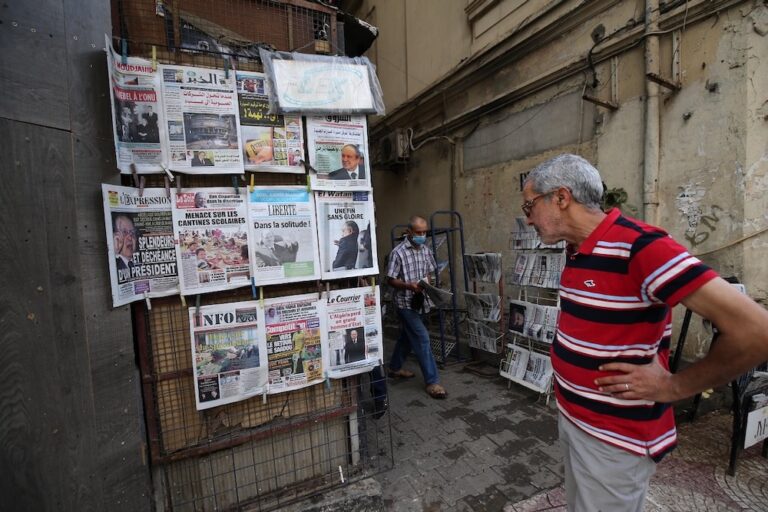(RSF/IFEX) – On 7 October 2003, Farid Alilat, managing editor of the daily “Liberté”, was arrested at his newspaper’s offices and brought before an Algiers court, where he was questioned for five hours about a column entitled “La fessée” (“The Spanking”). RSF has condemned the episode as the latest in a series of incidents involving […]
(RSF/IFEX) – On 7 October 2003, Farid Alilat, managing editor of the daily “Liberté”, was arrested at his newspaper’s offices and brought before an Algiers court, where he was questioned for five hours about a column entitled “La fessée” (“The Spanking”).
RSF has condemned the episode as the latest in a series of incidents involving harassment of the independent press. The organisation warned the authorities not to damage freedom of expression any further on the eve of the presidential election. “These arrests bring the government into disrepute,” said RSF Secretary-General Robert Ménard.
The column, published on 21 August, was written by Hakim Laâlam of the daily “Le Soir d’Algérie”, which was suspended at the time for having failed to pay its debts to the state printers. “Liberté” published the column as a gesture of solidarity.
In early September, journalists who work for the private press made a collective decision to refuse to respond when summoned by the judicial police. They decided they would only answer for what they had written before the courts.
“Liberté” editor-in-chief Said Chekri said the summonses arrive so frequently that it is hard to keep track of them. The judicial police have issued approximately 30 summonses in the last month. The same scenario has been played out on a regular basis for over a month. Following three summonses, journalists are arrested, brought before the chief prosecutor and the examining magistrate, and given a conditional release.
Sometimes common law cases going back several years are reopened, but journalists are usually arrested for “insulting the head of state” (under Article 144a of the Criminal Code). Lately, journalists have been arrested at their newspaper’s offices rather than in the street.


